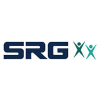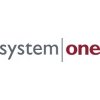What does the Senior Electrical Power Engineer do?
You’ll operate, maintain, renovate, and repair automated or computerized control systems, stationary engines, and auxiliary equipment such as reactors, turbines, boilers, generators, stationary engines, pumps, compressors, refrigeration systems, and other equipment to generate electrical power that supplies heat, light, ventilation, refrigeration and other utility services for commercial, industrial, and institutional buildings and other work sites.
You’ll also ensure the equipment and processes operate safely and efficiently. Finally, you’ll develop operation, maintenance, and safety procedures.
Are you qualified?
Bachelor’s degree in Electrical Engineering required.
Engineer in Training, or EIT certification required. Professional Engineer, P.E., preferred.
Minimum 15 years electrical engineering and or design experience.
Must have experience with SKM or ETAP electrical modeling software.
Must be knowledgeable in NEC (National Electrical Code).
Familiar with IEEE, NFPA, GO-95, API, and ISA standards.
Working knowledge in AutoCAD or AutoCAD LT preferred.
Experience in professional networking and the development of business relationships is a plus.
What will you be doing day-to-day?
- Starts up, regulates, and shuts down power equipment; controls switching operations, regulates water levels, and communicates with systems operators to regulate and coordinate transmission loads, frequency, and line voltages.
- Monitors and inspects plant equipment, computer terminals, switches, valves, gauges, alarms, meters, computerized controls, and other instruments to measure temperature, pressure and fuel flow, to detect leaks or other equipment malfunctions, and to ensure plant equipment is operating at maximum efficiency.
- Checks safety devices, troubleshoots, identifies issues, makes necessary adjustments, and performs corrective action to prevent equipment or system failure.
- Cleans and lubricates generators, turbines, pumps, and compressors; performs other routine equipment and preventive maintenance duties;
and completely overhauls equipment when necessary.
- Analyzes and records instrument readings and equipment malfunctions.
- Maintains a daily log of operation, maintenance, safety activities, and relevant events pertaining to the maintenance and operation of power equipment;
and writes reports on plant operation.
- May direct the work of power engineer assistants, turbine operators, boiler tenders, and air-conditioning and refrigeration operators and mechanics.
- Engineer and design industrial power distribution and control systems.
- Perform electrical engineering calculations and studies such as load flow, short circuit, arc flash analysis, protective relay coordination, voltage drop, raceway and conductor sizing, and grounding system conductor sizing.
- Develop and or modify specifications, calculations, and drawings in compliance with applicable codes and standards.
- Assist in the development of cost estimates, change orders, material takeoffs, resource utilization and forecasting reports.
- Assist in the planning, execution, and monitoring of work performed within the electrical engineering and design department.
- Coordinate with customers, vendors, distributors, and contractors as required in the execution of engineering and design duties.
- Provide construction support such as building, field observations, and field modifications.









